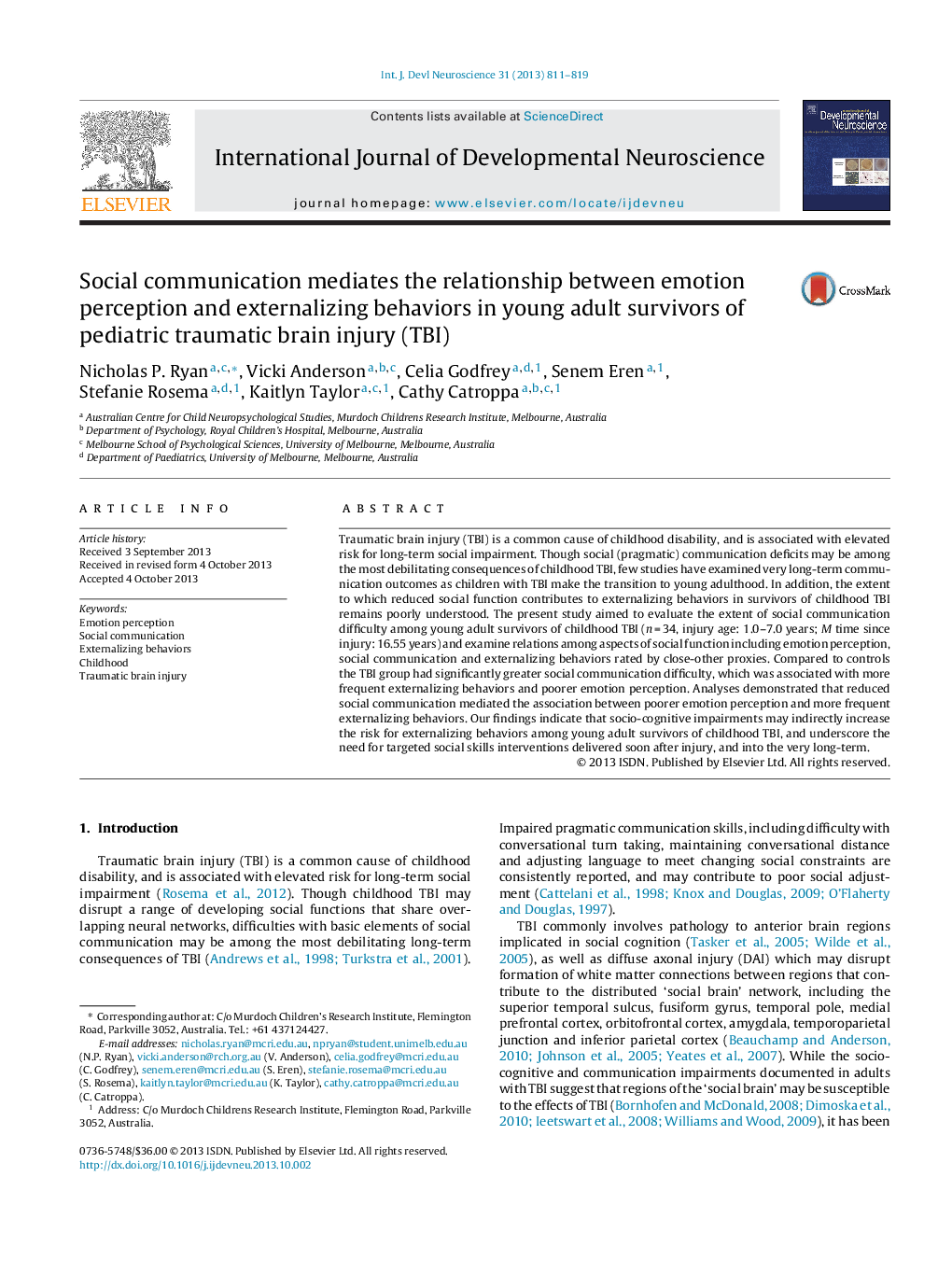| Article ID | Journal | Published Year | Pages | File Type |
|---|---|---|---|---|
| 2786162 | International Journal of Developmental Neuroscience | 2013 | 9 Pages |
•We investigate very-long social outcomes in 34 young adult survivors of pediatric TBI, and 16 healthy controls.•Results provide evidence for persisting socio-cognitive and communicative dysfunction 16-years post-TBI.•Greater social communication difficulty is linked to more frequent externalizing behaviors.•Social communication mediates the relationship between emotion perception and externalizing behaviors in the TBI sample.
Traumatic brain injury (TBI) is a common cause of childhood disability, and is associated with elevated risk for long-term social impairment. Though social (pragmatic) communication deficits may be among the most debilitating consequences of childhood TBI, few studies have examined very long-term communication outcomes as children with TBI make the transition to young adulthood. In addition, the extent to which reduced social function contributes to externalizing behaviors in survivors of childhood TBI remains poorly understood. The present study aimed to evaluate the extent of social communication difficulty among young adult survivors of childhood TBI (n = 34, injury age: 1.0–7.0 years; M time since injury: 16.55 years) and examine relations among aspects of social function including emotion perception, social communication and externalizing behaviors rated by close-other proxies. Compared to controls the TBI group had significantly greater social communication difficulty, which was associated with more frequent externalizing behaviors and poorer emotion perception. Analyses demonstrated that reduced social communication mediated the association between poorer emotion perception and more frequent externalizing behaviors. Our findings indicate that socio-cognitive impairments may indirectly increase the risk for externalizing behaviors among young adult survivors of childhood TBI, and underscore the need for targeted social skills interventions delivered soon after injury, and into the very long-term.
